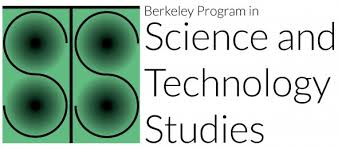
Exploring the Intersection of Science and Technology Studies
The Importance of Science and Technology Studies
Science and technology studies (STS) is an interdisciplinary field that explores the complex relationships between society, science, and technology. This field delves into how scientific knowledge is produced, how technologies are developed and implemented, and how these processes impact individuals and societies.
One key aspect of STS is its focus on the social and cultural dimensions of science and technology. By examining the ways in which scientific research is conducted and technological innovations are adopted, STS scholars shed light on the values, assumptions, and power dynamics that shape these processes.
STS also plays a crucial role in critiquing the role of science and technology in society. It highlights the ethical considerations involved in scientific research, such as issues of equity, access, and environmental sustainability. By questioning the assumptions underlying scientific practices, STS helps ensure that technological advancements serve the greater good.
Moreover, STS encourages a more inclusive approach to science and technology by recognizing diverse perspectives and voices. By incorporating insights from fields such as sociology, anthropology, history, philosophy, and political science, STS offers a comprehensive understanding of how science and technology intersect with broader social issues.
In today’s rapidly evolving world, where technological advancements have profound implications for our lives, STS provides a critical framework for analyzing these developments. By fostering dialogue between scientists, policymakers, industry leaders, and the public, STS contributes to informed decision-making that takes into account both scientific expertise and societal values.
Ultimately, science and technology studies remind us that scientific progress is inseparable from social progress. By engaging with the complexities of science and technology in their societal contexts, we can work towards a more equitable, sustainable future for all.
7 Essential Tips for Navigating Science and Technology Studies
- Stay updated on the latest advancements in science and technology.
- Engage in critical thinking when analyzing scientific information.
- Explore the ethical implications of technological developments.
- Collaborate with experts from various fields to gain diverse perspectives.
- Utilize reliable sources for research and information gathering.
- Participate in discussions and debates to broaden your understanding.
- Consider pursuing further education or certifications in specialized areas.
Stay updated on the latest advancements in science and technology.
To fully engage with the field of science and technology studies, it is essential to stay updated on the latest advancements in these rapidly evolving fields. By staying informed about new discoveries, innovations, and debates in science and technology, individuals can better understand how these developments shape our society and influence our daily lives. Keeping abreast of the latest advancements ensures that one can critically analyze the implications of emerging technologies and contribute meaningfully to discussions on the intersection of science, technology, and society.
Engage in critical thinking when analyzing scientific information.
Engaging in critical thinking when analyzing scientific information is paramount in science and technology studies. By questioning assumptions, evaluating evidence, and considering alternative perspectives, individuals can develop a deeper understanding of the complexities inherent in scientific research and technological advancements. Critical thinking allows us to discern between reliable data and misinformation, enabling us to make informed decisions based on sound reasoning and evidence. In a world inundated with information, cultivating critical thinking skills is essential for navigating the ever-evolving landscape of science and technology with clarity and discernment.
Explore the ethical implications of technological developments.
Exploring the ethical implications of technological developments is a crucial aspect of science and technology studies. By examining how new technologies impact individuals, communities, and the environment, we can better understand the ethical dilemmas that arise from their use. This exploration allows us to consider questions of privacy, equity, safety, and societal well-being in the design and implementation of technology. By addressing these ethical considerations early on, we can work towards creating a more responsible and sustainable technological future that benefits society as a whole.
Collaborate with experts from various fields to gain diverse perspectives.
Collaborating with experts from various fields is a valuable tip in the realm of science and technology studies. By engaging with professionals from disciplines such as sociology, anthropology, history, philosophy, and political science, researchers can gain diverse perspectives that enrich their understanding of the complex interactions between science, technology, and society. This interdisciplinary approach not only broadens the scope of research but also ensures that different viewpoints are considered, leading to more comprehensive analyses and informed decision-making. Embracing collaboration with experts from diverse fields is essential for fostering innovation and addressing the multifaceted challenges posed by advancements in science and technology.
Utilize reliable sources for research and information gathering.
It is essential to utilize reliable sources for research and information gathering when delving into science and technology studies. By relying on credible sources, such as peer-reviewed journals, reputable websites, and expert opinions, researchers can ensure the accuracy and validity of their findings. This practice not only enhances the quality of research but also upholds the integrity of the field by promoting evidence-based analysis and informed decision-making. In a landscape inundated with misinformation, using reliable sources is paramount in advancing our understanding of the intricate relationships between science, technology, and society.
Participate in discussions and debates to broaden your understanding.
Participating in discussions and debates is a valuable tip for those interested in science and technology studies. Engaging in dialogue with others allows you to explore diverse perspectives, challenge your own assumptions, and gain new insights into the complex interplay between science, technology, and society. By actively participating in discussions, you can broaden your understanding of key issues, deepen your knowledge base, and develop critical thinking skills that are essential for navigating the ever-evolving landscape of scientific and technological advancements.
Consider pursuing further education or certifications in specialized areas.
For those interested in delving deeper into the field of science and technology studies, a valuable tip to consider is pursuing further education or certifications in specialized areas. By enrolling in advanced courses or obtaining specialized certifications, individuals can enhance their knowledge and expertise in specific aspects of STS, such as science policy, ethics in technology, or innovation studies. This additional education can provide a deeper understanding of complex issues within the field and open up opportunities for career advancement and specialization.

